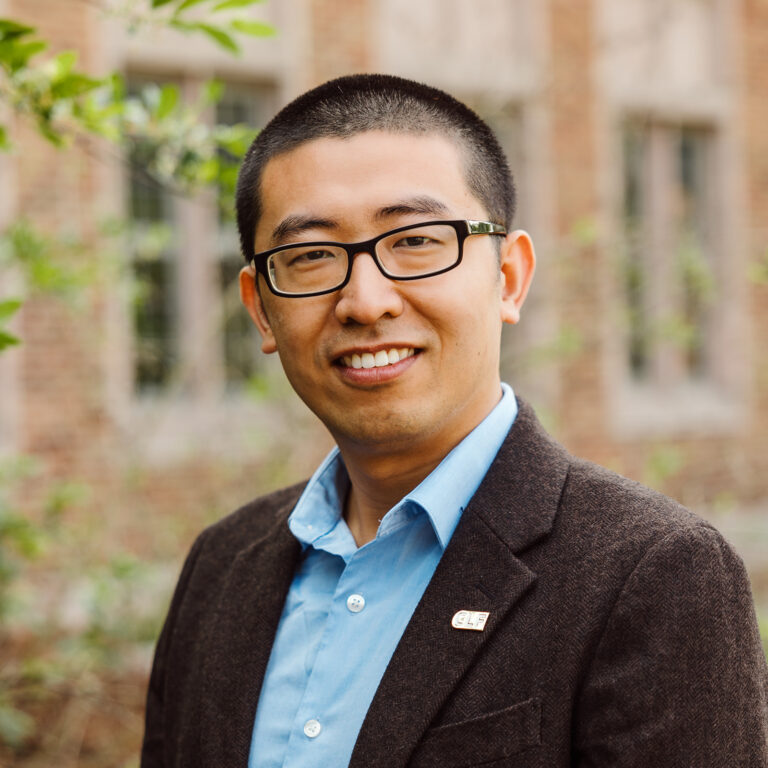Research Affiliate
Yang Shen is a research engineer at the University of Washington. Before joining CLF, he was a Postdoctoral Research Fellow in George Mason University focusing on multidisciplinary research such as Computer Vision/Deep Learning applications in the Built Environment. Yang got his PhD in Civil Engineering (Structural Engineering) from Texas A&M University. His Ph.D. research was tightly associated with building science, embodied carbon quantification/optimization, building operational energy simulation, parametric modeling, structural analysis, data analytics, and machine learning. He is passionate about using interdisciplinary studies to achieve climate change adaptation and mitigation.
by Yang Shen
Before my Ph.D. program in structural engineering at Texas A&M University, I knew little about embodied carbon. I got my bachelor’s and master’s degrees from Hefei University of Technology (in China), both of which were focused on bridge engineering. As I began to write federal proposals and learn lots of new things during my Ph.D. research, I came to understand the importance of embodied carbon in buildings.
In 2020, the U.S. building sector accounted for 40% of primary energy expenditures. Overall, the operational component of carbon footprint has a major share (80–90%) in the life-cycle energy use of buildings, followed by embodied carbon (10–20%). However, with continued emphasis on a reduction in operational energy over the last decades, the ratio of operational carbon vs. embodied carbon has been shifting towards an increasing share of embodied carbon. This warrants comprehensive sustainability and decarbonization research and action by the community of architects, engineers, and construction professionals. Increasingly, we are adopting an approach that considers operational carbon and embodied carbon equally and holistically and addresses them within an LCA framework, especially in the face of the big historical challenges of climate change adaptation and mitigation.
My Ph.D. dissertation had the title of Hybrid Building Energy-Structure Performance Analysis. My topic was the organic integration of building operational energy and embodied carbon using different techniques and tools such as building energy simulation, parametrical modeling, data analysis, and machine learning. To achieve this goal, I registered for lots of courses from my university’s departments of mechanical engineering, statistics, architecture, and urban planning. This precious experience provided me with strong technical knowledge and a solid foundation in how to do interdisciplinary research.
I regard myself as an interdisciplinary engineer/researcher/learner—so my learning journey never ends. After completing my degree, I worked as a postdoc Research Fellow at George Mason University focused on the hot-spot applications of computer vision, deep learning, and time series analysis in different disciplines. Though my work was not obviously related to carbon, I’ve learned that it’s possible for me to understand much later how something in my work turned out to be valuable for me even when it didn’t seem so at first. Meanwhile, I got actively involved as a committee member for the SEI Sustainability Committee (ASCE), and as a Provisional Corresponding Member for several ASHRAE committees.
My passion is to use interdisciplinary studies to achieve the goal of decarbonization. I believe that CLF is the right place to help me to realize that goal. I first learned about CLF when I was using the EC3 datasets in my Ph.D. research. I knew about the challenge inherent in developing a consensus-based quantification framework and protocol in the environmental inventory databases, and I knew that CLF was addressing that challenge with collaborators from across academia and industry. More and more people like me with different research backgrounds but with the same passion for decarbonization and sustainability were gathering around the Carbon Leadership Forum.
As a member of the Carbon Leadership Forum staff, I am looking forward to learning about and helping develop Dynamic LCA systems and tools, and to doing in-depth research and development on novel carbon storage or sequestration technologies and bio-based materials. I know I’ll be delighted to collaborate with architects, civil engineers, climate scientists, environmental engineers, software engineers, data scientists, and policy experts on interdisciplinary grants and research.
Remember that decarbonization is not the responsibility of one group of professionals, but of many communities working together. As an old saying from China expresses it: “众人拾柴火焰高” (when everybody adds fuel, the flames rise high).
Great things can be accomplished by the broadest possible set of partnerships.

Hiking in the Great Falls National Park, Virginia

Yang Shen
“My Ph.D. topic was the organic integration of building operational energy and embodied carbon using different techniques and tools such as building energy simulation, parametrical modeling, data analysis, and machine learning.”

Crabbing in Corpus Christi, Texas